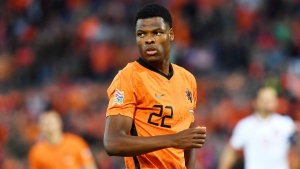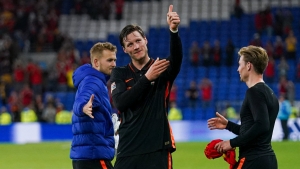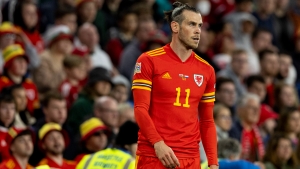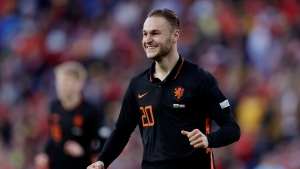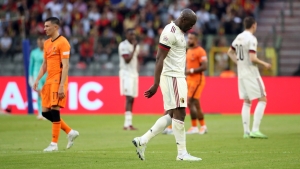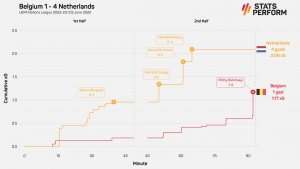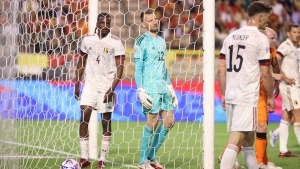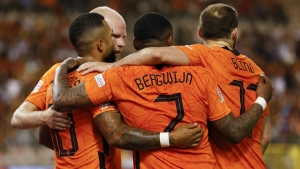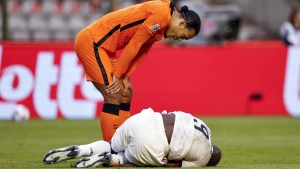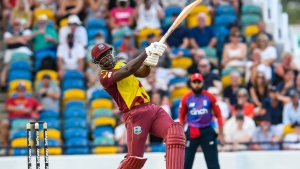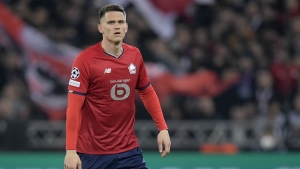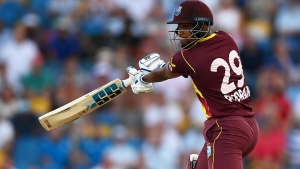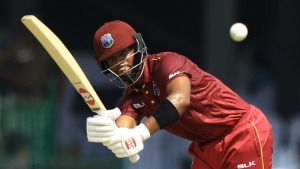The Netherlands deservedly defeated Belgium for the first time since September 1997 on Friday, sensationally winning 4-1 in Brussels in their Nations League opener.
A 25-year wait for an Oranje victory against their nearest neighbours was emphatically ended by Louis van Gaal's side.
Steven Bergwijn – reportedly set for a move back to the Netherlands with Ajax – set the visitors on their way, before Memphis Depay netted either side of a Denzel Dumfries goal in an outstanding display.
In their first competitive match of a World Cup year, the Netherlands hinted at a return to form against elite opponents, whose big names crumbled as both Romelu Lukaku and Eden Hazard were substituted early - Michy Batshuayi's last-gasp goal proving scant consolation.
Careless defending at either end contributed to a lively encounter, although Timothy Castagne's early effort against the angle of post and crossbar was one of Belgium's few threats in the game.
The Netherlands soon took control – aided by Lukaku's departure with an injury – and Simon Mignolet was finally beaten five minutes before half-time.
Bergwijn arrowed a fine finish into the bottom-right corner from 25 yards, although an Oranje penalty was struck off before half-time as a VAR review showed Dumfries' cross had struck Castagne's face and not his raised arm.
Depay, who had been set to take that spot-kick, had to wait only until six minutes after the restart for his goal, charging beyond the Belgium defence and firing past Mignolet.
A brief Belgium flurry was followed by a further two Dutch goals, as Mignolet parried Steven Berghuis' curler only as far as Daley Blind, who squared for Dumfries to score, then the left-back nodded down a long ball for Depay to control and lash in the fourth.
There was belatedly a Belgium response, after Castagne had been denied by an offside flag and Dries Mertens thumped against the post, but Batshuayi's stoppage-time strike came far too late to take the shine off a stunning Netherlands win.
What does it mean? Dutch domination
Belgium were in command for the opening quarter of an hour, but they soon bowed under a barrage of Netherlands attacks. The Oranje kept 70 per cent of the possession for the next 15 minutes and attempted the next nine shots, scoring through Bergwijn.
After waiting so long to beat Belgium, Van Gaal's men did not settle for the single goal, adding real gloss after the interval in a landmark result.
Memphis moving up
With two more goals, Depay now has 41 for his country and surely has his sights set on Robin van Persie's record of 50. Only Klaas Jan Huntelaar (42) now stands between the pair.
Van Gaal is getting the best out of Depay, who has now been involved in 17 Netherlands goals since the coach's return.
Boos for Belgium
It was little surprise to hear the home crowd turn on Belgium, who were completely outclassed by a side ranked eight places below them by FIFA.
The Red Devils were not helped by the departures of Lukaku and Hazard. The Chelsea forward tangled with Nathan Ake and could not shake a knock, while his captain followed at half-time – albeit without any obvious injury.
What's next?
Belgium must bounce back when they face Poland on Wednesday in the same stadium, while the Netherlands are at Wales next.
























